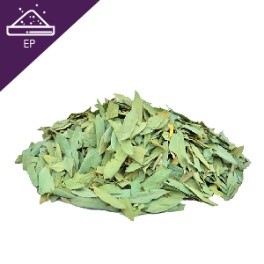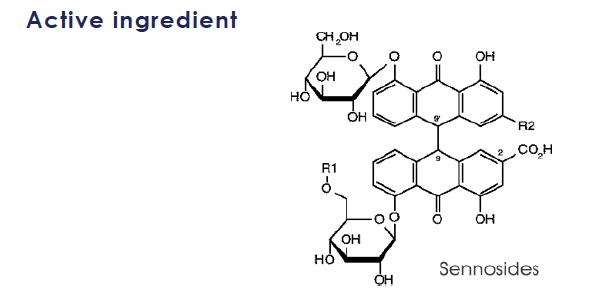Description
Product Name : Senna Extract Liquid
Botanical Name : Cassia angustifolio
Family Name : FABACEA
Common Name : Senna, Makhaam Khaek (in Thai)
Part Used : Leaves


- Fuctional Drinks
- Supplements
- Fuctional Foods
- Capsules
Product Name : SennaExtract Liquid
Product Name : Senna Extract Liquid
Botanical Name : Cassia angustifolio
Family Name : FABACEA
Common Name : Senna, Makhaam Khaek (in Thai)
Part Used : Leaves


herbal extract for food supplement
Product Name : Ficus Foveolata Extract Powder Ficus foveolata is found in Thailand also known as Maa-Kra-Tuep-Rong. The botanical characteristics is scandent shrup, leaves are oblong-elliptic, bark brown and fruit globose . The phytochemicals constituents of this plant include flavonoilds, β-Sitosterol and stigmasterol. In traditional of medicine, it use ficus extract for sexual tonic, general tonic or blood tonic, relieves physical exhaustion and backache.
Product Name : Ficus Foveolata Extract Powder Ficus foveolata is found in Thailand also known as Maa-Kra-Tuep-Rong. The botanical characteristics is scandent shrup, leaves are oblong-elliptic, bark brown and fruit globose . The phytochemicals constituents of this plant include flavonoilds, β-Sitosterol and stigmasterol. In traditional of medicine, it use ficus extract for sexual tonic, general tonic or blood tonic, relieves physical exhaustion and backache.
Product Name : Antidesma Extract Powder Antidesma bunius is also known as Mamao Luang or Mao Luang ( in Thai ). Mamao Luang, a kind of medicinal fruit trees could be found in most of dipterocarp forested areas in Northeast Thailand. The small oval shape of fruit when ripe has an attractive bright red. Some people in Thailand used the fruits when ripe as a medicinal plant. Nowadays, Mamao Luang fruits have been used as a raw material for making tasty jelly jam, drinking juices, juice concentrate and wine. It has been advocated that juices derived from ripe fruits could...
Product Name : Antidesma Extract Powder Antidesma bunius is also known as Mamao Luang or Mao Luang ( in Thai ). Mamao Luang, a kind of medicinal fruit trees could be found in most of dipterocarp forested areas in Northeast Thailand. The small oval shape of fruit when ripe has an attractive bright red. Some people in Thailand used the fruits when ripe as a medicinal plant. Nowadays, Mamao Luang fruits have been used as a raw material for making tasty jelly jam, drinking juices, juice concentrate and wine. It has been advocated that juices derived from ripe fruits could...
Product Name : Innovacan Rich of purified beta-1,3/ 1,6-glucan, extracted from yeast cell walls, fine, free-flowing light-beige powder form, excellent for foundation of dietary supplements and fundamental foods. The present natural product used for improves food texture and also responsible for specific binding with macrophages, thus improving the immune response and providing healthy living.
Product Name : Innovacan Rich of purified beta-1,3/ 1,6-glucan, extracted from yeast cell walls, fine, free-flowing light-beige powder form, excellent for foundation of dietary supplements and fundamental foods. The present natural product used for improves food texture and also responsible for specific binding with macrophages, thus improving the immune response and providing healthy living.
Product Name : Giant Curcuma Extract Powder Giant curcuma is a zingiberaceous plant found both wild and cultivated in Thailand. The rhizome of this plant can be use for the treatment of the inflammation in postpartum uterine bleeding, emmenagogue., tonic and also choagogue. In Europe, it is also employed in choleretic drug preparations. In the present researches are revealed that xanthorrhizol could be involved in the protective effect on cisplatin-induced hepatotoxicity (liver damage), and nephrotoxicity (kidney damage), and anti-metastic (mutation antagonist), antitumor, and sedative activities. In cosmetics, It has the anti-inflammatory activity due to diarylheptanoids, such as alnustone and also...
Product Name : Giant Curcuma Extract Powder Giant curcuma is a zingiberaceous plant found both wild and cultivated in Thailand. The rhizome of this plant can be use for the treatment of the inflammation in postpartum uterine bleeding, emmenagogue., tonic and also choagogue. In Europe, it is also employed in choleretic drug preparations. In the present researches are revealed that xanthorrhizol could be involved in the protective effect on cisplatin-induced hepatotoxicity (liver damage), and nephrotoxicity (kidney damage), and anti-metastic (mutation antagonist), antitumor, and sedative activities. In cosmetics, It has the anti-inflammatory activity due to diarylheptanoids, such as alnustone and also...
Product Name : Spirulina Extract Powder Spirulina is a type of blue-green micro-algae that forms spiral filaments or chains that led to its descriptive name. Nature’s Way Spirulina is farmed in environmentally controlled ponds specially constructed for this purpose. Spirulina is known by its high nutritional value and considered as one of the most complete natural sources of proteins, vitamins, minerals and other nutrients. It is a dietary supplement that contains 65 % protein in its dried state. The present paper analyzes the potential of spirulina in the prevention and treatment of neuropathies on the basis of its main constituents and ...
Product Name : Spirulina Extract Powder Spirulina is a type of blue-green micro-algae that forms spiral filaments or chains that led to its descriptive name. Nature’s Way Spirulina is farmed in environmentally controlled ponds specially constructed for this purpose. Spirulina is known by its high nutritional value and considered as one of the most complete natural sources of proteins, vitamins, minerals and other nutrients. It is a dietary supplement that contains 65 % protein in its dried state. The present paper analyzes the potential of spirulina in the prevention and treatment of neuropathies on the basis of its main constituents and ...
Product Name : Mung Bean Extract Powder Mung bean also known as green bean, Tua-Kheaw (in Thai). The beans are small, which is green with the husk, and yellow when dehusked. The bean is a rich source of protein, fiber, fatty acids, vitamin B1, vitamin B2, beta-carotene, folic acid, calcium, phosphor, irons and isoflavones. Because of mung beans also contain high in fiber, low in saturated fat, low in sodium, and contain no cholesterol. They are useful for immune system, metabolism, heart and other organs by protect against free radicals and diseases such as cancer and diabetes.
Product Name : Mung Bean Extract Powder Mung bean also known as green bean, Tua-Kheaw (in Thai). The beans are small, which is green with the husk, and yellow when dehusked. The bean is a rich source of protein, fiber, fatty acids, vitamin B1, vitamin B2, beta-carotene, folic acid, calcium, phosphor, irons and isoflavones. Because of mung beans also contain high in fiber, low in saturated fat, low in sodium, and contain no cholesterol. They are useful for immune system, metabolism, heart and other organs by protect against free radicals and diseases such as cancer and diabetes.
Product Name : Andrographis Paniculata Extract Powder Andrographis is a plant native to India and Sri Lanka. All parts have a bitter taste. It is widely cultivated in Thailand. It grows up to a height of 30-110 cm in moist shady places with glabrous leaves and white flowers with rose-purple spots on the petals. Its leaves usage is popular in Scandinavian countries as a cold and influenza remedy and used traditionally in Ayurvedic Thai and Chinese medicine to treat fever associated with infectious diseases.
Product Name : Andrographis Paniculata Extract Powder Andrographis is a plant native to India and Sri Lanka. All parts have a bitter taste. It is widely cultivated in Thailand. It grows up to a height of 30-110 cm in moist shady places with glabrous leaves and white flowers with rose-purple spots on the petals. Its leaves usage is popular in Scandinavian countries as a cold and influenza remedy and used traditionally in Ayurvedic Thai and Chinese medicine to treat fever associated with infectious diseases.
herbal extract for food supplement
Product Name : Asparagus racemosus Extract Powder Asparagus racemosus Willd. is also called Shatavari in India and Rak-Samsip or Samroi-Rak in Thailand. Rak-Samsip is a small woody cliamber, the leaves are of pine needle shape. The roots are tuberous, finger shaped and clustered. Asparagus racemosus is mainly known for its phytoestrogenic properties. Its root has been used of the Ayuravedic medicine for female’s health such as increase in milk secretion, aphrodisiac, prevent abortion and antispasmodic. The major active constituents of Rak-Samsip are Steroidal saponins known as Shatavarins, Triterpeniods and Flavonoids. These compounds have many properties such as galactagogue, treatment of...
Product Name : Asparagus racemosus Extract Powder Asparagus racemosus Willd. is also called Shatavari in India and Rak-Samsip or Samroi-Rak in Thailand. Rak-Samsip is a small woody cliamber, the leaves are of pine needle shape. The roots are tuberous, finger shaped and clustered. Asparagus racemosus is mainly known for its phytoestrogenic properties. Its root has been used of the Ayuravedic medicine for female’s health such as increase in milk secretion, aphrodisiac, prevent abortion and antispasmodic. The major active constituents of Rak-Samsip are Steroidal saponins known as Shatavarins, Triterpeniods and Flavonoids. These compounds have many properties such as galactagogue, treatment of...
herbal extract for food supplement
Product Name : Centotheca Lappacea Extract Powder Centotheca lappacea, a grass known in Thai as “Ya Hee Yoom” or “Ya Repair”, belongs to the traditional medicine in Thailand and many Southeast Asia countries for wound healing and muscle tightening in post labor women. The traditional usage is from the smoke of the burning grass both in the dry or fresh plant with wood fuel. The postpartum women, wearing a Thai traditional dress called “Sarong” will stand over the pile of burning wood with the grass to be smoked on the treated area. Another way to use is by boiling the...
Product Name : Centotheca Lappacea Extract Powder Centotheca lappacea, a grass known in Thai as “Ya Hee Yoom” or “Ya Repair”, belongs to the traditional medicine in Thailand and many Southeast Asia countries for wound healing and muscle tightening in post labor women. The traditional usage is from the smoke of the burning grass both in the dry or fresh plant with wood fuel. The postpartum women, wearing a Thai traditional dress called “Sarong” will stand over the pile of burning wood with the grass to be smoked on the treated area. Another way to use is by boiling the...
Product Name : White Tea Extract Liquid Yoghurt is a dairy product which originated centuries ago in Bulgaria. Yoghurt is made by fermenting milk with bacteria such as Streptococcus thermophilus, Lactobacillus bulgaricus and other member of Lactobacillus genus. The milk sugar or lactose is fermented by these bacteria into lactic acid which causes the characteristic an acidic condition, sour and curd form. In addition, the bacteria used to make yoghurt called Lactic acid bacteria (LAB). For many centuries are believed that fermented milk is beneficial for health because the variety nutritional composition of yoghurt such as Protein, carbohydrate, calcium, potassium, magnesium, phosphorus, zinc, vitamin...
Product Name : White Tea Extract Liquid Yoghurt is a dairy product which originated centuries ago in Bulgaria. Yoghurt is made by fermenting milk with bacteria such as Streptococcus thermophilus, Lactobacillus bulgaricus and other member of Lactobacillus genus. The milk sugar or lactose is fermented by these bacteria into lactic acid which causes the characteristic an acidic condition, sour and curd form. In addition, the bacteria used to make yoghurt called Lactic acid bacteria (LAB). For many centuries are believed that fermented milk is beneficial for health because the variety nutritional composition of yoghurt such as Protein, carbohydrate, calcium, potassium, magnesium, phosphorus, zinc, vitamin...
Product Name : Honey Extract Powder Honey is the fluid that possesses high viscously and sweet in taste. It has been obtained from the bee’s products by accumulating the sweet fluid from the pollens. In traditional medicine, honey is used as a moisturizer, an intestinal emollient, a diuretic, and as an antidote. In addition to, it is used as a solvent for a medicine. In research reports, Honey has been useful in the treatment of surgical wounds, burns, and decubitus ulcers, and the antibacterial and antifungal properties. In burns in particular, honey has been found to control wound infection and...
Product Name : Honey Extract Powder Honey is the fluid that possesses high viscously and sweet in taste. It has been obtained from the bee’s products by accumulating the sweet fluid from the pollens. In traditional medicine, honey is used as a moisturizer, an intestinal emollient, a diuretic, and as an antidote. In addition to, it is used as a solvent for a medicine. In research reports, Honey has been useful in the treatment of surgical wounds, burns, and decubitus ulcers, and the antibacterial and antifungal properties. In burns in particular, honey has been found to control wound infection and...
Product Name : Guava Extract Powder Guava is a low evergreen tree or shrub 6 to 25 feet high, with wide - spreading branches and square, downy twigs. It is a tropical and semitropical plant. The flowers are white, incurved petals, 2 or 3 in the leaf axils, they are fragrant, with four to six petals and yellow anthers. Guava is well known for its high amount of vitamin C, 4-10 times higher than that of an orange. The fruit and the leaf contain bitter-tasting substances, such as tannin, and essential oils. The fruit also contains a large number of ...
Product Name : Guava Extract Powder Guava is a low evergreen tree or shrub 6 to 25 feet high, with wide - spreading branches and square, downy twigs. It is a tropical and semitropical plant. The flowers are white, incurved petals, 2 or 3 in the leaf axils, they are fragrant, with four to six petals and yellow anthers. Guava is well known for its high amount of vitamin C, 4-10 times higher than that of an orange. The fruit and the leaf contain bitter-tasting substances, such as tannin, and essential oils. The fruit also contains a large number of ...
เราใช้คุกกี้เพื่อพัฒนาประสิทธิภาพ และประสบการณ์ที่ดีในการใช้เว็บไซต์ของคุณ คุณสามารถศึกษารายละเอียดได้ที่ นโยบายความเป็นส่วนตัว และสามารถจัดการความเป็นส่วนตัวเองได้ของคุณได้เองโดยคลิกที่ ตั้งค่า
